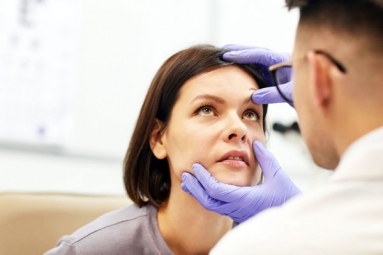
(Image source from: Canva.com)
Gynecological infections are prevalent, yet many individuals hesitate to seek timely medical care due to the stigma surrounding these conditions. This reluctance can exacerbate symptoms and lead to further complications. According to Dr. Astha Dayal, director of obstetrics and gynecology at CK Birla Hospital Gurgaon, there is a possibility that gynecological infections may recur, causing significant distress and potentially resulting in severe health issues. Regrettably, societal taboos and a lack of awareness often prevent adequate treatment, resulting in escalated symptoms and complications that could include pelvic inflammatory disease and infertility or ongoing pelvic pain in the long run. The following are some frequently encountered infections:
Yeast infections arise from an excessive growth of the fungus Candida albicans. The natural balance of fungi and bacteria in the vagina can be disrupted due to antibiotic use, weakened immune systems, or increased sugar levels, including conditions like diabetes. The overgrowth of the fungus leads to symptoms such as itching, swelling, a thick white discharge, and discomfort during intercourse or urination.
Bacterial vaginosis is the most commonly reported infection among individuals in their 20s to 40s, but it often presents with few obvious symptoms. An imbalance in the vagina's natural bacteria can facilitate the proliferation of harmful bacteria, resulting in a fishy odor, unusual discharge, and irritation in the vaginal area.
Chlamydia and gonorrhea are sexually transmitted infections caused by bacteria. These STIs frequently show no symptoms, primarily affecting young sexually active women, and can often go unnoticed for extended periods. If not addressed, they can lead to severe complications such as pelvic inflammatory disease and infertility.
Human Papillomavirus (HPV) is recognized as the most widespread sexually transmitted infection globally. Approximately 80% of sexually active individuals will encounter it at least once during their lifetime. While most HPV infections are benign and resolve spontaneously, the high-risk strains are major contributors to cervical cancer and certain cancers of the mouth and anus.
Urinary Tract Infections (UTIs) are frequently misunderstood as vaginal infections. Women tend to experience UTIs more commonly due to their shorter urethra, which allows bacteria to more easily enter the urinary tract, often following sexual activity or improper wiping techniques. Symptoms indicative of a UTI include a persistent urge to urinate, a burning sensation during urination, and discomfort in the lower abdomen.
Preventive tips to manage gynecological infections:
Practicing safe sex: Always utilize condoms during sexual activity to lower the likelihood of acquiring sexually transmitted infections such as chlamydia, gonorrhea, and trichomoniasis. Additionally, limiting the number of sexual partners can lessen the risk of STIs.
Maintaining proper hygiene: The vaginal area is prone to warmth and perspiration, making it susceptible to infections. Opt for breathable cotton underwear to help sustain a healthy pH level and avoid moisture accumulation. Clean the vaginal area gently with mild soap and water on a daily basis, refrain from douching, and choose unscented feminine hygiene products.
Prioritizing hydration: To help prevent urinary tract infections, ensure you drink sufficient water to stay hydrated, respond to the urge to urinate promptly, and wipe from front to back.
Scheduling regular gynecological appointments: It is important to undergo a yearly checkup and STI screening. Starting at age 25, Pap smears should be done every three years, and from age 30, Pap tests combined with HPV tests should occur every five years to prevent cervical cancer. The most effective preventive strategy is receiving the HPV vaccine, which helps protect against high-risk strains.
Leading a healthy lifestyle: High sugar levels in bodily fluids can contribute to the likelihood of fungal infections. A balanced diet low in carbohydrates, such as sugar and refined flour, along with effective sugar control and adequate intake of probiotics, can enhance vaginal health and help prevent reoccurrence.










